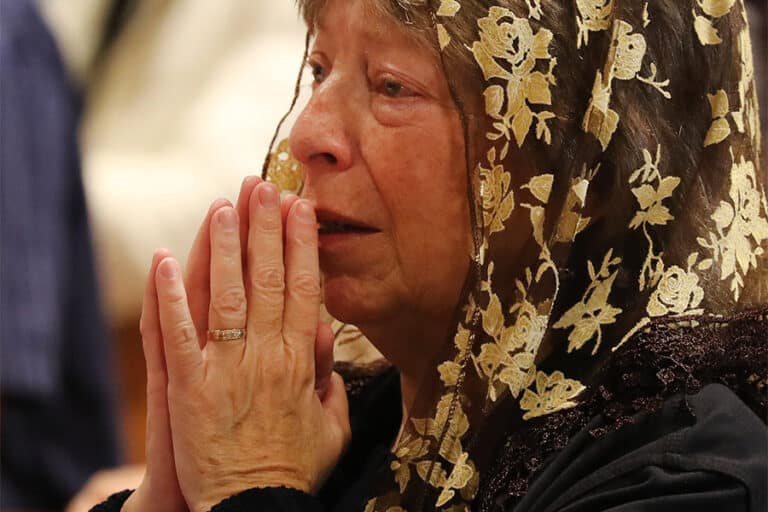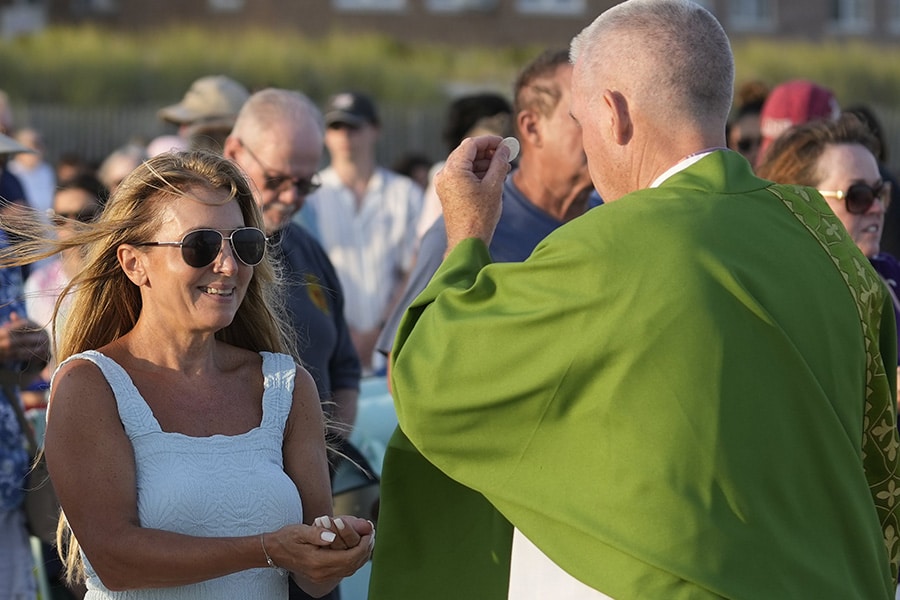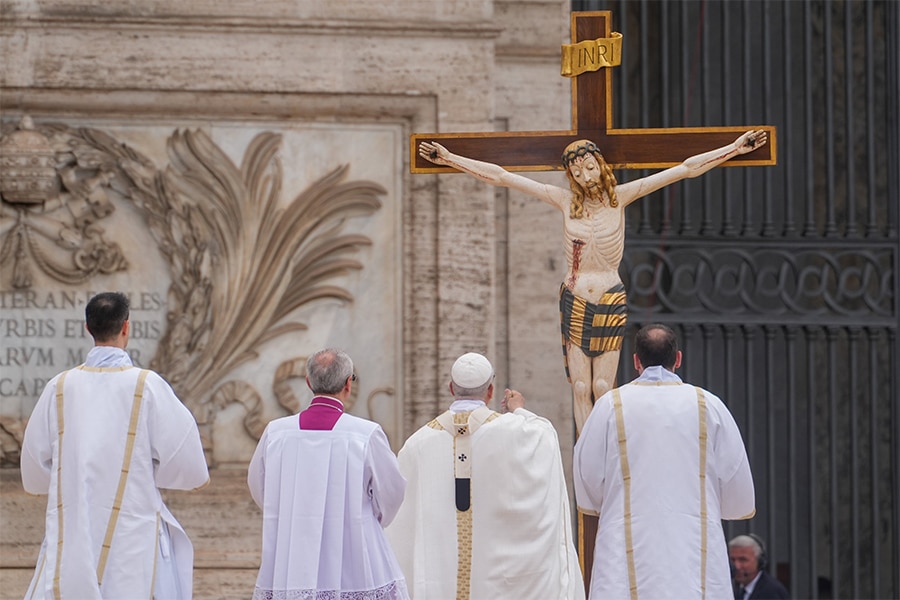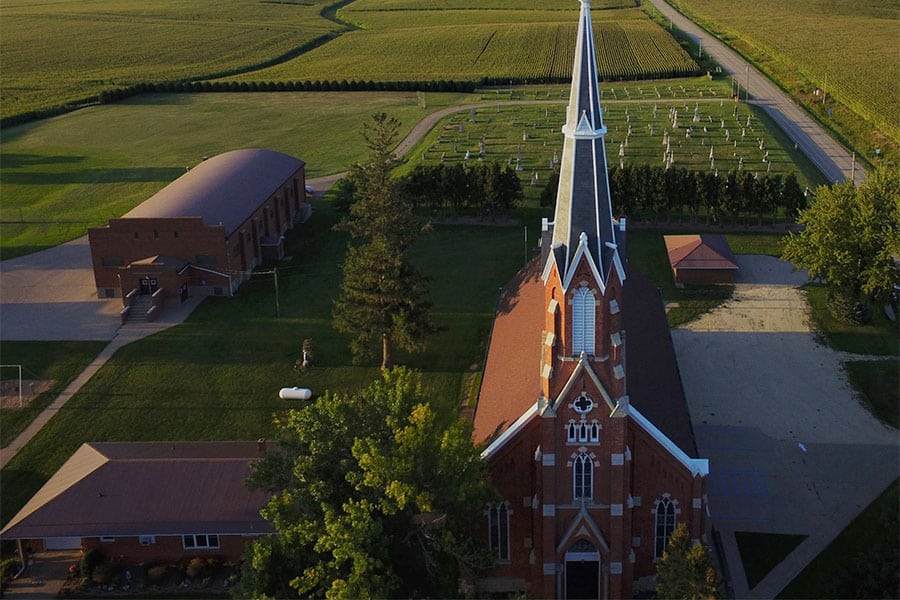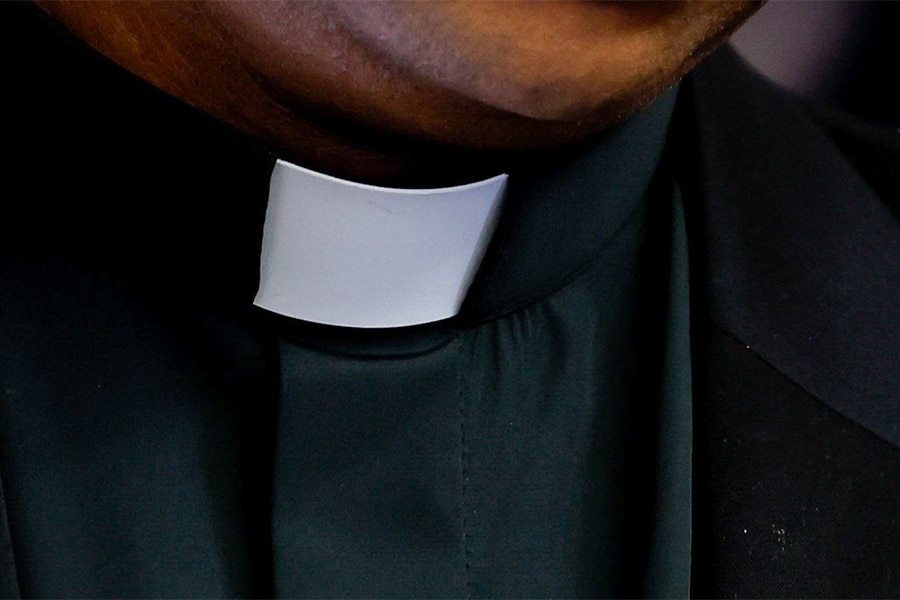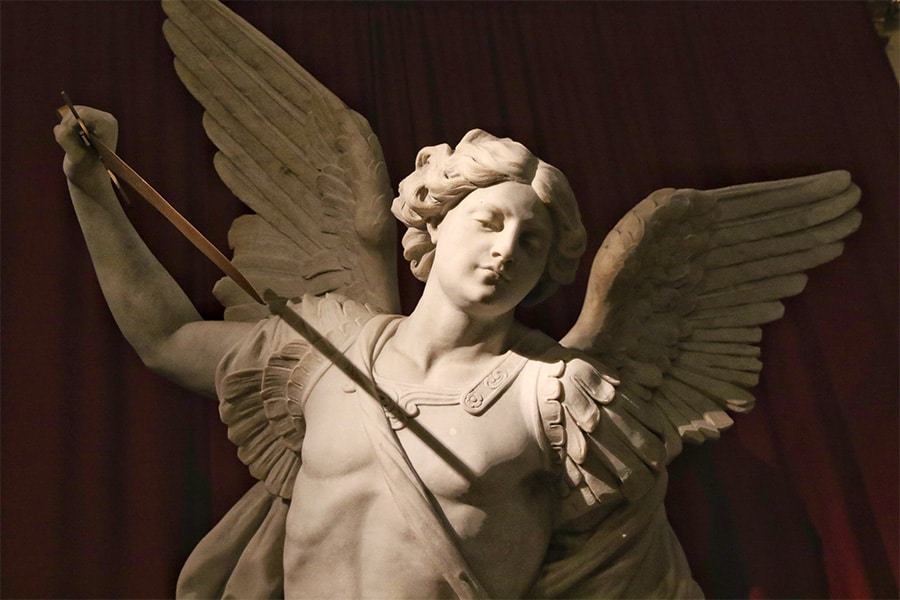Q: With a dead pope, how do we fulfill the requirement of praying for the intentions of the pope for an indulgence? (North Dakota)
A: The general understanding among canon lawyers is that indulgences can still be earned during an “interregnum period” — meaning, during the period between the death or resignation of a pope and the election of his successor — because there does not need to be a reigning pope in order for the faithful to pray for the pope’s intentions.
For some background, the Catechism of the Catholic Church describes indulgences as being “obtained through the Church who, by virtue of the power of binding and loosing granted her by Christ Jesus, intervenes in favor of individual Christians and opens for them the treasury of the merits of Christ and the saints to obtain from the Father of Mercies the remission of the temporal punishments due for their sins” (CCC 1478).
The Catechism goes on to tell us that “through indulgences, the faithful can obtain the remission of temporal punishment resulting from sin for themselves and also for the souls in Purgatory” (CCC 1498).
Indulgences can never be bought, only earned freely through prayers or other pious works, such as making a pilgrimage. For a plenary indulgence (that is, an indulgence which effects the complete remission of the “temporal punishment” or necessary purification, due one’s sins, as opposed to a partial indulgence) there are some other standard conditions which must also be fulfilled. These are typically: making a good sacramental confession and receiving holy Communion some time shortly before or after completing the indulgenced act; being free from a personal sense of attachment from sin; and praying for the intentions of the Holy Father.
While it might seem odd or contradictory to pray for the intentions of the pope when there is no pope, there are a few practical work-arounds.
First, it is generally understood that to satisfy the requirements of an indulgence, it’s enough to pray for literally just “the intentions of the Holy Father,” even if we’re not aware of what these intentions are explicitly.
But also, be aware that the Holy See in Rome regularly publishes the Holy Father’s specific stated intentions up to a year in advance. For example, although Pope Francis died in April, we know that his requested prayer intention for the month of May 2025 is “that through work, each person might find fulfilment, families might be sustained in dignity, and that society might be humanized.” Of course, we can still pray for this praiseworthy intention even if Pope Francis is no longer with us on this earth.
This reasoning is echoed in a private reply from the Apostolic Penitentiary (the Vatican “department” responsible for indulgences) to a “dubium” submitted in April 2005, after the death of Pope St. John Paul II, about the possibility of praying for a deceased pope’s intentions.
This written response was not widely published, but has still been shared among canon lawyers in professional circles for reference. In it, the representative of the Apostolic penitentiary notes that: “Even though the Apostolic See is vacant, the conditions of praying for the intention of the Supreme Pontiff are fulfilled (by reciting once the ‘Our Father’ and the ‘Hail Mary’ once; nevertheless, the opportunity is also given to the individual faithful to recite another prayer which pleases them according to the piety and devotion of each one), … since the ends of the Pope’s intention, the ends for which one must pray — undoubtedly the spiritual good of the whole Church — persist.”
Or in other words, we know that the Holy Father, no matter who he is or what his personal spirituality is like, will always have the good of the church as the ultimate intention in all his prayers and prayer requests. And the good of the church is a “goal” which will always exist, regardless of whether the chair of St. Peter itself is occupied or temporarily vacant.
Read More Question Corner
Copyright © 2025 OSV News

